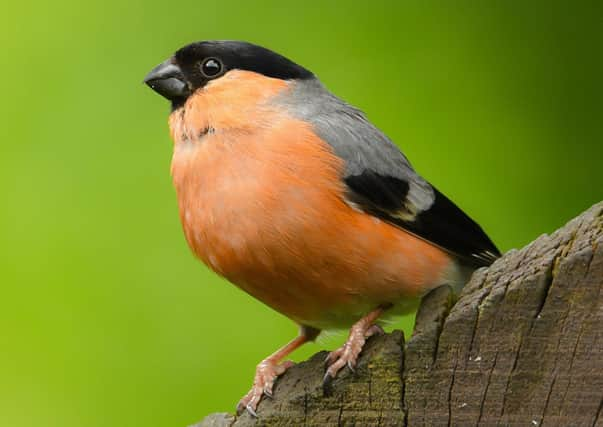Hedge your bets and look after birds this breeding season


The leading conservation charity is appealing to people to be extra careful when tending to gardens from now on – and not to touch any birds’ nests in or on houses.
Many people mistakenly believe that birds only nest between April and September, but some species have already started.
Advertisement
Advertisement
Singing, displaying and nest building among birds including blackbirds, magpies, wrens and robins has begun, proving that the breeding season will soon be in full swing. Some people might have noticed more bullfinches, goldfinches and greenfinches in gardens too, while it won’t be too long before spring migrants including chiffchaffs and willow warbler start to return.
Pruning hedges or shrubs and tidying plants could have a serious effect on birds’ breeding success if nests are dislodged or damaged - always thoroughly check hedges/trees for nests before starting to cut them - so RSPB NI is asking people to save everything but essential tidying in gardens until later in the year.
RSPB NI Policy Officer Phil Carson said: “RSPB NI and other environmental organisations always get lots of calls and messages at this time of year about nesting and hedge-cutting and how this can affect birds in breeding season.
“Our hedges are so important for nature in gardens and in our countryside, providing an important space for a range of wildlife. From nesting habitat for birds, to pollen and nectar sources for pollinators including bees and butterflies, it’s important that we manage these vital habitats well. Protecting them during the spring and summer months is one of the key steps we can take.”
Advertisement
Advertisement
Birds nesting in Northern Ireland are legally protected under the Wildlife (Northern Ireland) Order 1985 (as amended). Under this legislation, it is illegal to intentionally or recklessly take, damage or destroy an active nest or its contents. This can be reported to the PSNI by calling 101.
“If you discover a nest outside, the advice is to try and restore any covering preferably with cuttings from the same hedge or those nearby and give it a wide berth until young birds have flown the nest.
“It is quite common for birds to nest in/on houses too. If they are entering the eaves, then they are most likely starlings or house sparrows. Unless you believe the birds to be trapped, you should leave them alone,” adds Phil.
Protecting our hedges and the species that use them is also vitally important in the wider countryside.
Advertisement
Advertisement
“Well-managed hedgerows are vital for nature, but can also provide benefits to farm business, from shelter to livestock, natural pest management and carbon storage and sequestration,” says Phil.
Under Cross Compliance regulations, landowners/farmers are required not to undertake any hedgerow cutting between March 1 to August 30 each year. Doing so is a breach of these regulations and may result in penalties. From April 15 to September 1, the burning of heather, gorse, whin or fern is also prohibited – partly to protect ground-nesting birds and to avoid damaging habitat.
If anyone witnesses these activities taking place during the closed period, this can be reported by visiting https://www.daera-ni.gov.uk/publications/report-water-pollution-cross-compliance-incident-damage-environment-countryside, email [email protected] or call 0300 2007 842 and ask for ‘Whistleblower’.
The RSPB has been operating in Northern Ireland for over 50 years to inspire a world richer in nature. The charity has more than 11,
Advertisement
Advertisement
000 members, around 60 employees, 300 volunteers and 10 reserves.
For more advice and tips regarding hedge-cutting, nesting and finding baby birds, visit RSPB NI’s blog: https://bit.ly/BabyBirdFAQ. More information on how to help give nature a home can be found at www.rspb.org.uk/homes